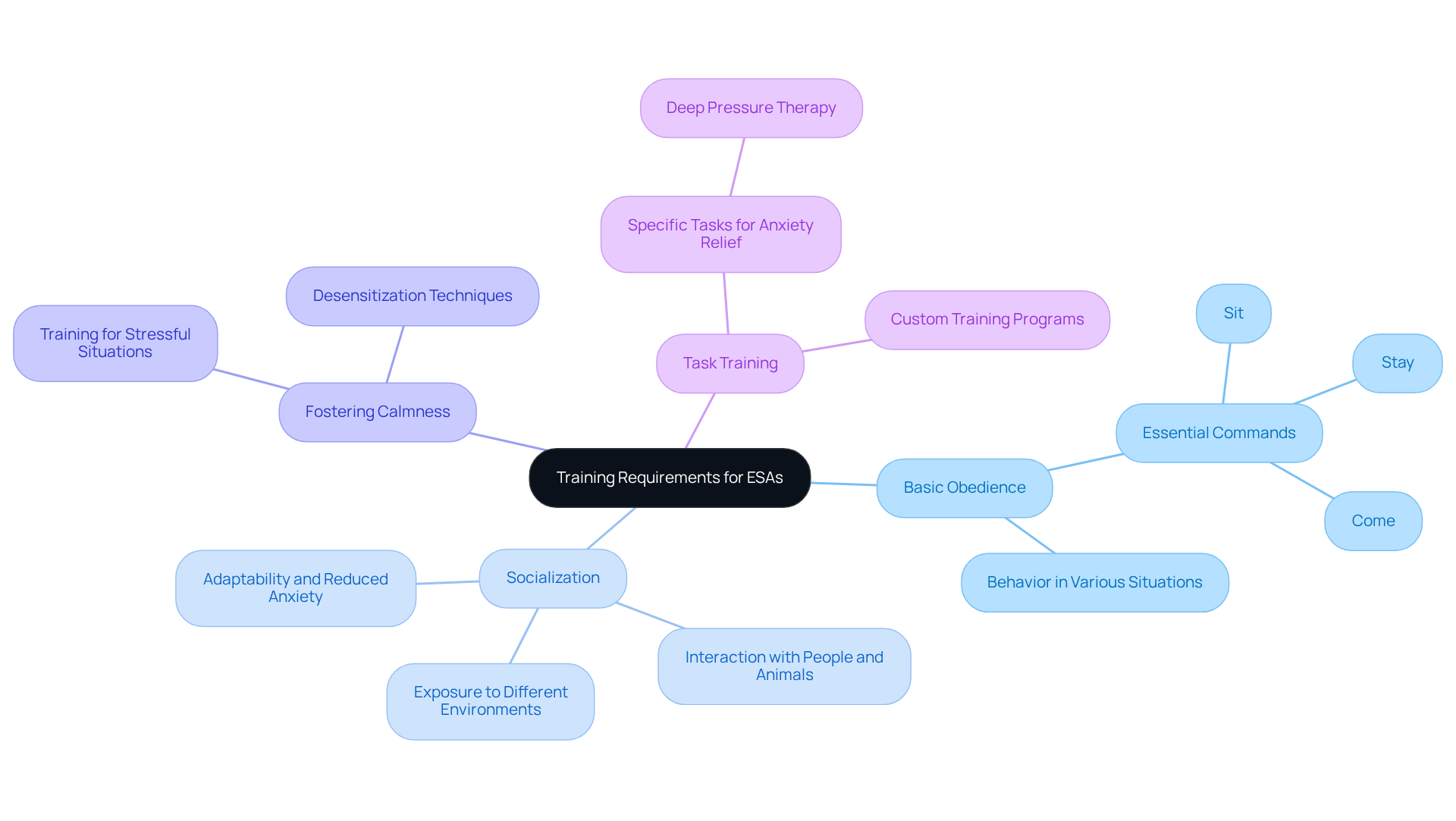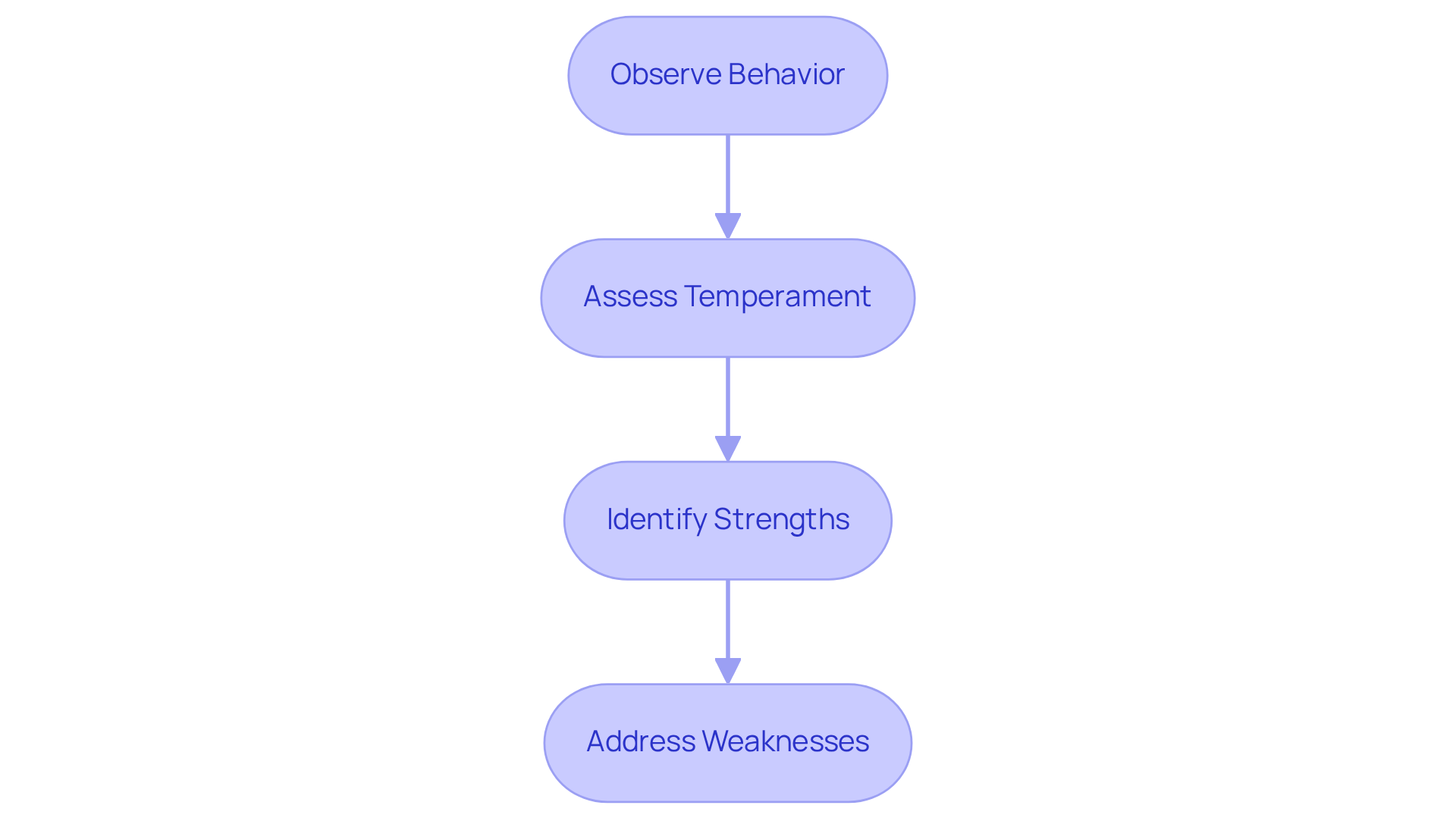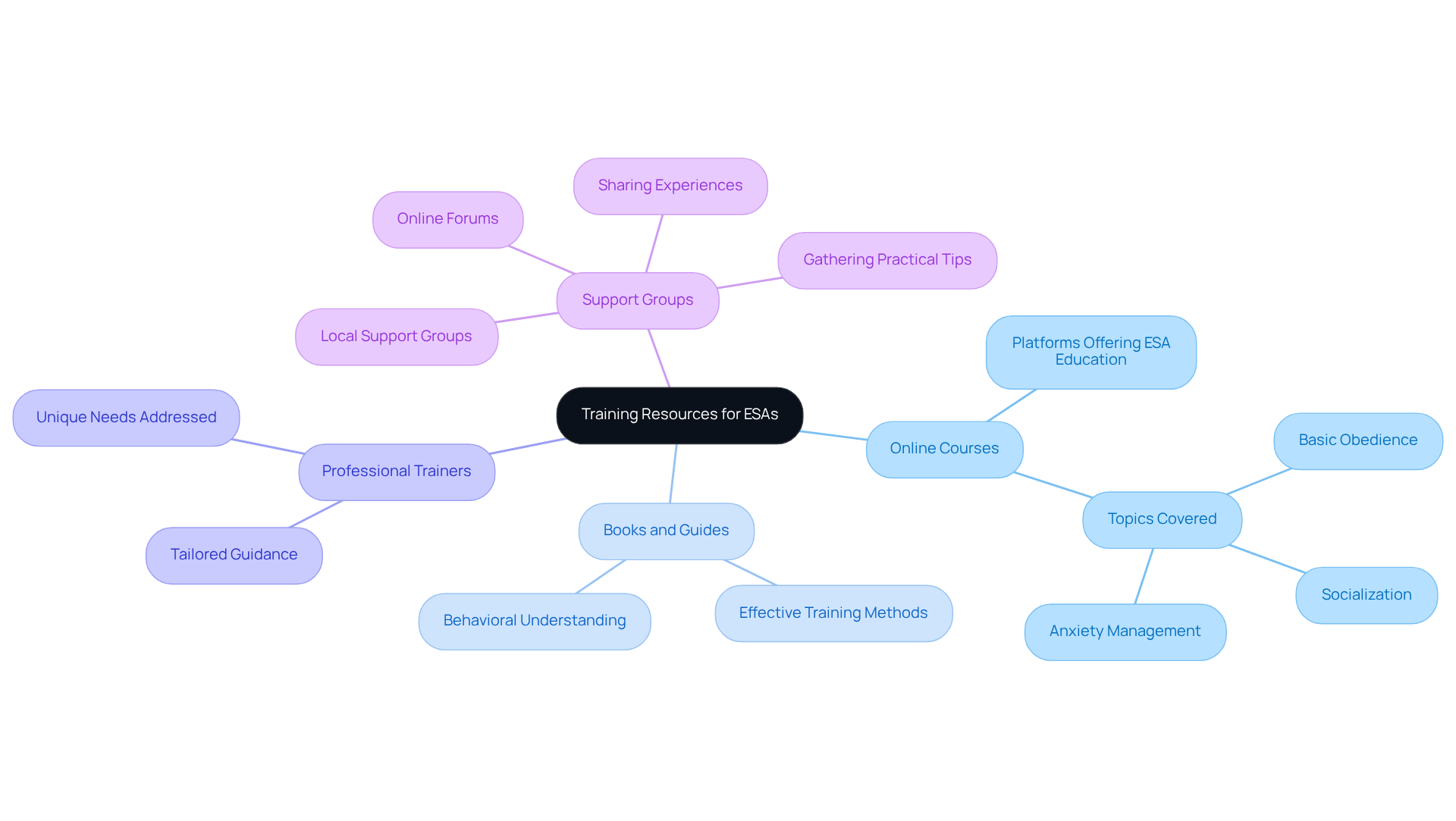

Do Emotional Support Animals Need Training? Key Steps for Owners
by Lena Park
Last updated: August 20, 2025
Verified and Approved by:
Angela Morris,
MSW, LCSW
Fact Checked

Overview
Emotional Support Animals (ESAs) do not require formal training, yet basic obedience and socialization can significantly enhance their ability to provide emotional support. It’s important to recognize that while ESAs primarily offer companionship, training in areas such as calmness and adaptability can enrich their interactions with their owners. This, in turn, helps them fulfill their supportive role more effectively, creating a deeper bond and understanding between the ESA and their human companion.
Introduction
Emotional Support Animals (ESAs) have become essential companions for individuals navigating emotional and psychological challenges, providing comfort simply through their presence. While formal training isn’t a prerequisite for these animals, grasping the nuances of their role can greatly enhance the support they offer. This brings forth a thought-provoking question: how can owners nurture their ESAs effectively to ensure they fulfill their intended purpose?
By exploring the vital training steps and resources available, owners can empower themselves to cultivate a deeper bond, ultimately transforming their lives and the lives of their cherished animals.
Understand the Role of Emotional Support Animals
Emotional Support Animals (ESAs) play a crucial role in offering companionship and comfort to individuals grappling with emotional or psychological challenges. Unlike service animals, the question of do emotional support animals need training is not applicable, as they do not require specialized training to perform specific tasks; their primary purpose is to provide emotional support simply through their presence. Understanding this role is essential for guardians, as it shapes their approach to education and interaction with their ESA. Owners should appreciate that the bond they share with their ESA is rooted in trust and companionship, significantly enhancing their emotional well-being. This foundational insight empowers owners to recognize the developmental needs of their ESAs, ensuring that these animals can effectively fulfill their supportive role.
Many individuals face emotional struggles that can feel overwhelming. The presence of an ESA can provide a sense of relief and comfort, offering a safe space to navigate these challenges. Imagine coming home to a warm, furry friend who senses your feelings and offers unconditional love. This connection can be transformative, reminding us that we are not alone in our journey.
It’s important to acknowledge the profound impact that ESAs can have on emotional health. By fostering a trusting relationship, owners can create an environment where their ESA thrives, ultimately enhancing both their lives. This understanding not only supports the emotional journey but also encourages the development of a fulfilling bond.
If you’re considering the benefits of an ESA, remember that help is available. An ESA letter can be a compassionate solution, validating the importance of this relationship and providing the necessary support. You deserve to feel understood and cared for, and an ESA can be a vital part of that journey.
Identify Training Requirements for Your ESA
While formal preparation for Emotional Support Animals (ESAs) isn’t required, it is important to consider if emotional support animals need training to significantly enhance their ability to provide the emotional support you may need. As you consider your journey with an ESA, reflecting on the following training requirements can be beneficial:
-
Basic Obedience is essential. Teaching commands such as sit, stay, and come can help answer the question of whether emotional support animals need training to behave appropriately in various situations, providing you with peace of mind.
-
A crucial role is played by socialization, leading to the question: do emotional support animals need training? Exposing your ESA to different environments, people, and other animals can help them become more adaptable and less anxious in new situations, which ultimately supports your emotional well-being.
-
Additionally, fostering calmness is vital when considering whether emotional support animals need training. Training them to remain calm in stressful situations is key, which raises the question of whether emotional support animals need training, as their primary role is to provide you with comfort. Techniques such as desensitization can be particularly helpful in this regard.
-
Lastly, while not mandatory, some individuals may wish to train their ESAs, which raises the question: do emotional support animals need training to perform specific tasks that can alleviate anxiety? For example, teaching your ESA to provide deep pressure therapy during panic attacks can create a profound sense of relief.
By recognizing these educational requirements, you can develop a structured program that aligns with your ESA’s natural behaviors and your emotional preferences, ultimately enhancing the bond you share and the support they provide.

Evaluate Your ESA’s Behavior and Needs
To effectively train an Emotional Support Animal (ESA), it’s essential for owners to first assess their pet’s behavior and needs, particularly in relation to do emotional support animals need training. This thoughtful evaluation can be approached through several compassionate steps:
- Observe Behavior: Take the time to observe your ESA in various situations. This helps you identify their natural behaviors, triggers, and reactions to stressors, allowing for a deeper understanding of their emotional landscape.
- Assess Temperament: Consider whether your ESA tends to be calm, anxious, or excitable. Understanding their temperament will guide you in determining the type of instruction they may benefit from most.
- Identify Strengths: Acknowledge any existing skills or positive behaviors that can be nurtured during training. For instance, if your ESA is naturally affectionate or responsive to commands, these traits can be reinforced to foster a stronger bond.
- Address Weaknesses: It’s important to recognize any behavioral challenges that may need attention, such as a fear of loud noises or difficulties with socialization. Tailoring your training approach to address these specific needs can significantly enhance your ESA’s development.
By thoroughly evaluating your ESA’s behavior and needs, you can determine if do emotional support animals need training to create a more effective and personalized training program that nurtures a supportive and loving relationship. Remember, this journey is not just about training; it’s about building a connection that brings comfort and joy to both you and your ESA.

Explore Training Resources and Options
Once owners have recognized the training needs of their Emotional Support Animal (ESA) and assessed their behavior, they can gently explore a variety of training resources and options available to them:
- Online Courses: There are numerous platforms that offer online courses specifically designed for ESA education. These courses cover essential topics such as basic obedience, socialization, and anxiety management, allowing owners to proceed at a pace that feels comfortable for them.
- Books and Guides: A wealth of books provides valuable insights into effective training methods and behavioral understanding. These resources empower individuals to learn in a way that suits their personal journey.
- Professional Trainers: Engaging a skilled dog trainer who is knowledgeable about ESAs can provide tailored guidance and support, addressing the unique needs of both the handler and the ESA.
- Support Groups: Connecting with others through online forums or local support groups can be incredibly beneficial. These communities offer a space to share experiences and gather practical tips from fellow ESA owners.
By embracing these resources, owners can significantly enhance their training efforts to address the question of do emotional support animals need training, ensuring that their ESA is well-prepared to offer the emotional support they truly need.

Conclusion
Emotional Support Animals (ESAs) play a crucial role in offering comfort and companionship to those navigating emotional and psychological challenges. While these animals may not require formal training like service animals, understanding their behavior and needs is vital for maximizing the benefits they provide. By nurturing a trusting relationship and incorporating basic training elements, owners can significantly enhance their ESAs’ ability to offer emotional support.
Key insights shared in the article underscore the importance of recognizing the unique needs of ESAs. Basic obedience, socialization, and calming techniques are essential elements that can greatly strengthen the bond between the owner and their ESA. Furthermore, assessing an ESA’s behavior and temperament allows for tailored training approaches that nurture their strengths while addressing any weaknesses, creating a supportive environment for both the animal and the owner.
Ultimately, the journey with an Emotional Support Animal transcends mere training; it is about forging a meaningful connection that enriches lives. By exploring various training resources and options, owners can equip their ESAs with the necessary skills to navigate diverse environments and challenges. Embracing this journey not only enhances the emotional well-being of the owner but also fosters a deeper, more fulfilling bond with their ESA.
Frequently Asked Questions
What is the role of Emotional Support Animals (ESAs)?
ESAs provide companionship and comfort to individuals dealing with emotional or psychological challenges. Their primary purpose is to offer emotional support through their presence.
Do Emotional Support Animals require specialized training?
No, ESAs do not require specialized training to perform specific tasks, as their main function is to provide emotional support rather than perform trained duties.
How can the bond between an owner and their ESA impact emotional well-being?
The bond is rooted in trust and companionship, significantly enhancing the owner’s emotional well-being and helping them recognize the developmental needs of their ESA.
What benefits can an ESA provide to individuals facing emotional struggles?
An ESA can offer a sense of relief and comfort, creating a safe space for individuals to navigate their challenges and reminding them that they are not alone.
How can owners foster a trusting relationship with their ESAs?
By creating an environment where their ESA can thrive, owners can enhance both their emotional journey and the bond they share with their animal.
What is an ESA letter and how can it help?
An ESA letter validates the importance of the relationship between the owner and their ESA, providing necessary support and helping individuals feel understood and cared for.
Certify Your Emotional Support Animal Today

Why You Can Rely on Us?
At Wellness Wag, we believe your pet deserves care rooted in both science and compassion. Each article is carefully researched, written in clear language for pet owners, and then reviewed by qualified professionals to ensure the information is evidence-based, current, and practical for real-life care. Our goal is to help you feel confident in making informed decisions about your pet’s health and well-being.
Reviewed by
Angela Morris, MSW, LCSW
Angela is a licensed clinical social worker with 20 years of experience in patient advocacy and community mental health. She has assisted numerous clients with ESA evaluations and brings a deep understanding of disability accommodations, ensuring that all information is accurate, supportive, and practical.

Written by :
Lena Park
Last Updated :
August 20, 2025












